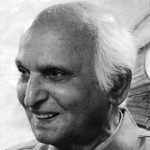
Of surprising autobiographies
A lot more people are writing their memoirs, most leave me wondering why the author has taken the trouble.
I am used to meeting Nathu, the mechanic, at the filling station where I get fuel for my car. He mends punctured tyres. One day he requested that I teach him how to write.
“I am okay at reading. Writing is my only weakness,” he told me.
I asked why he wanted to learn to write.
“I want to write my autobiography,” he said.
“An autobiography? Is that what you want to write?” I asked.
“Yes sir,” he said. “I have been through a lot. When I am done writing, you’ll be amazed with the things I come out with.”
It registered then how trends have changed. It used to be that only some very distinguished people who had lived very remarkable lives would write about their experiences. Autobiographies were popular with the reading public but most people believed that it was an enterprise worthy only of eminent people who had had some very interesting experiences. These days, however, a lot more people are writing their memoirs. As a result the books I receive these days almost always include some.
Most of these leave me wondering why the author has taken the trouble.
It is as if everybody who can read and write now believes that there is something new and unique about the way he has lived his life and that it is therefore worth writing about. There are those, of course, whose writing vindicates this feeling. Their may be no great achievements in their careers but there is something to be said about the account.
One such lady at least has been an exceptional success. She was Akhtar Hussain Raipuri’s wife. Raipuri, of course, was a famous writer. He had also been to many parts of the world and interacted with many contemporary writers. In India, too, his associates were not limited to Urdu writers. He had himself been an acclaimed writer in English, Hindi and Bengali. During his last days he wrote an autobiography which was predictably well received. A surprise, however, was sprung by his wife. She took to writing after he had passed away and penned what has become the most popular autobiography of our times.
Hasan Askari Kazmi, the author of the book I want to put in a word for today, has been writing both prose and poetry in Urdu as well as Punjabi. He has also been a career teacher. He remembers many an eminent scholar and a hoard of poets.
Reading through his memoirs I wondered at the benign person he has always been. All he has been involved with has been the teaching of Urdu. A public servant will always be transferred around. So what was the need for such detail in this regard?
But then I also thought maybe that is the way it should be. If his students have included Punjabis, Sindhis and Mohajirs from all over India and he has dealt with all that is right and wrong with our education system, the biography might as well reflect that.
Kazmi recalls a good many mushaira recitals: inviting the famous poets over, educating the students on who is who and through personal interaction gaining new insights into the kinds of people they were.
Some of his descriptions stand out.
Relish this:
“Zaheeer Kaashmiri had a pointed beard those days and wore his hair long. At first glance one could be forgiven for taking him for a visitor from Shakespeare’s England. He had a fair complexion, high nose and broad forehead. He was a handsome man with a bass voice who recited his poetry with an air of great optimism.
‘I am aware that I resemble the late-night lamp;
there shall be light when I go out, not darkness.’”
*Translated from Urdu




COMMENTS
Comments are moderated and generally will be posted if they are on-topic and not abusive.
For more information, please see our Comments FAQ